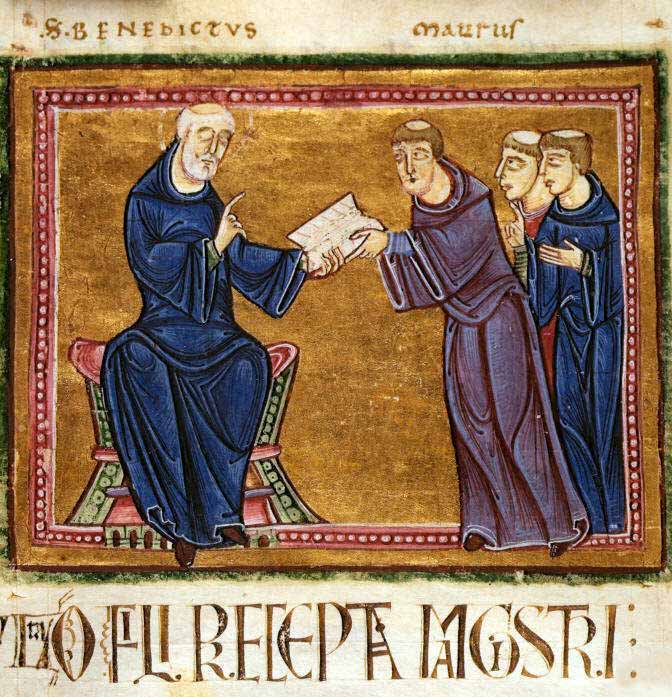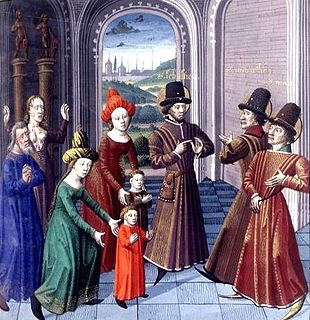
Today is the feast of Our Most Holy Father St Benedict. St Gregory the Great started off his Dialogues, Book II as follows:
"There was a man of venerable life, blessed by grace, and blessed in name, for he was called "Benedictus" or Benedict. From his younger years, he always had the mind of an old man; for his age was inferior to his virtue. All vain pleasure he despised, and though he was in the world, and might freely have enjoyed such commodities as it yields, yet he esteemed it and its vanities as nothing.
He was born in the province of Nursia, of honorable parentage, and brought up at Rome in the study of humanity. As much as he saw many by reason of such learning fall to dissolute and lewd life, he drew back his foot, which he had as it were now set forth into the world, lest, entering too far in acquaintance with it, he likewise might have fallen into that dangerous and godless gulf.
Therefore, giving over his book, and forsaking his father's house and wealth, with a resolute mind only to serve God, he sought for some place, where he might attain to the desire of his holy purpose. In this way he departed, instructed with learned ignorance, and furnished with unlearned wisdom.
All the notable things and acts of his life I could not learn; but those few, which I mind now to report, I had by the relation of four of his disciples; namely, Constantinus, a most rare and reverent man, who was next Abbot after him; Valentinianus, who for many years had the charge of the Lateran Abbey; Simplicius, who was the third superior of his order; and lastly of Honoratus, who is now Abbot of that monastery in which he first began his holy life."Happy feast day, and do enjoy this recording of the hymn for Lauds."




